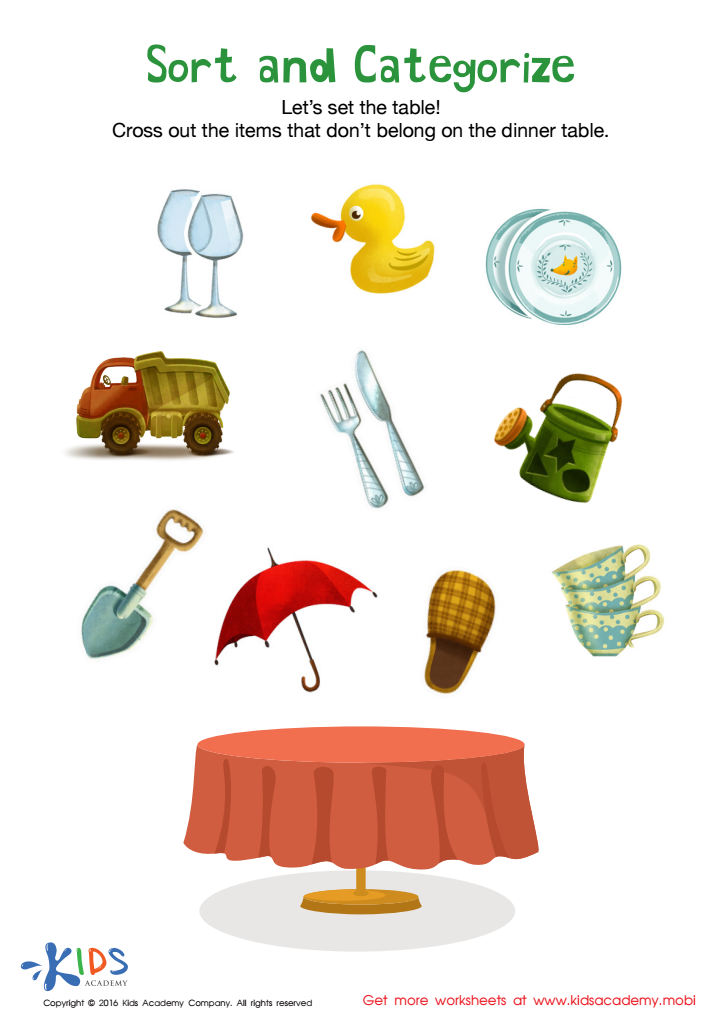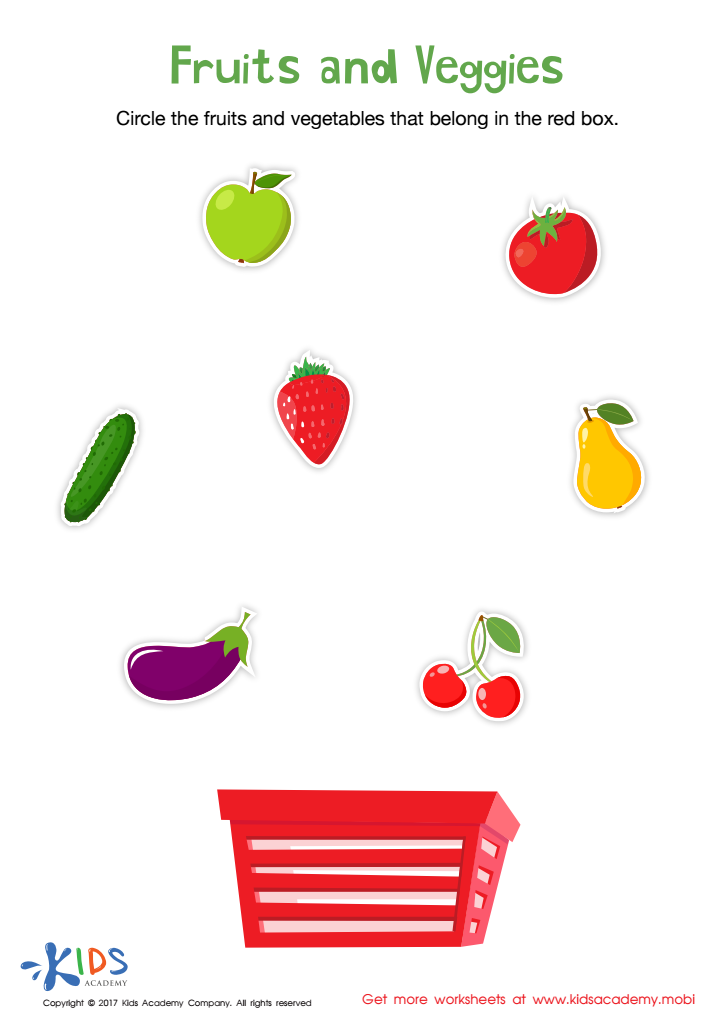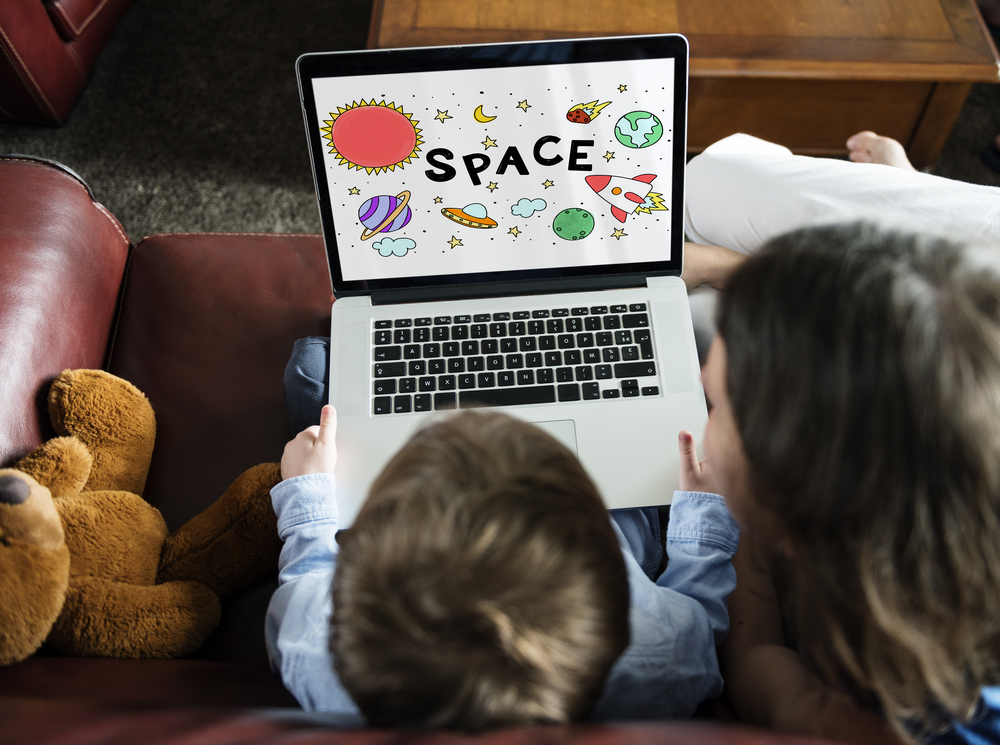Categorization skills Matching Worksheets for 4-Year-Olds
6 filtered results
-
From - To
Enhance your 4-year-old's learning journey with our engaging Categorization Skills Matching Worksheets! Designed specifically for young learners, these worksheets foster critical thinking and recognition skills by helping children categorize various objects by characteristics such as color, shape, size, and more. With fun illustrations and interactive activities, kids will enjoy matching items, making learning both enjoyable and impactful. These worksheets are perfect for at-home exploration or as a valuable resource for educators. Promote early math proficiency and cognitive development as your child masters categorization skills while having fun! Download now and watch your little one thrive!
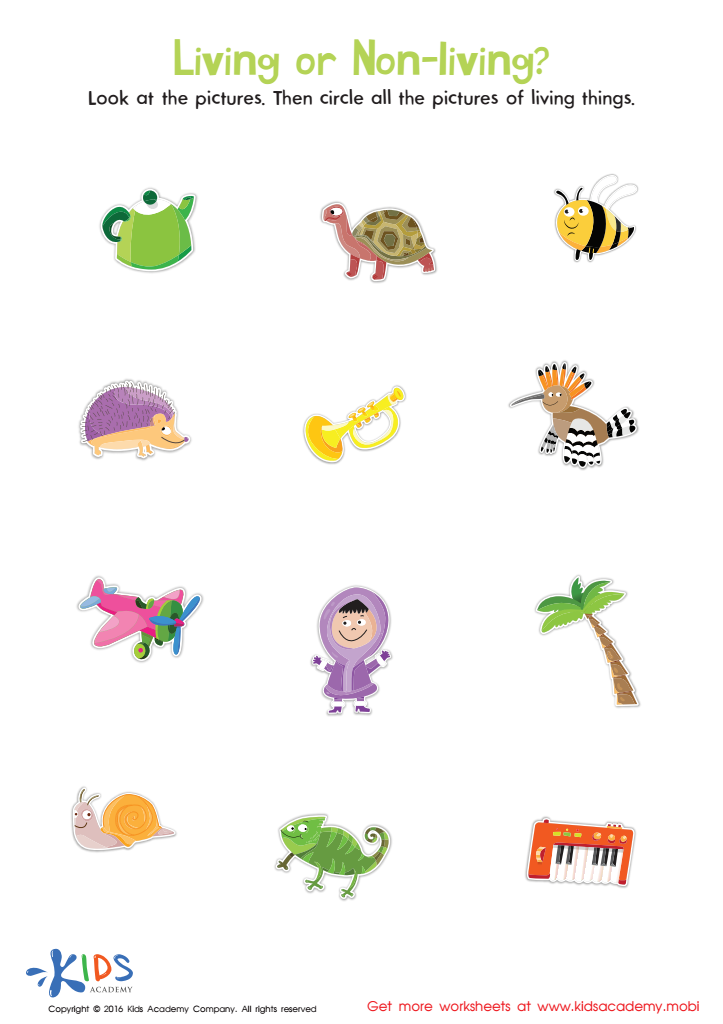

Identifying Living and Non–living Things Sorting Worksheet


Matching: Classifying Toys by Size Worksheet
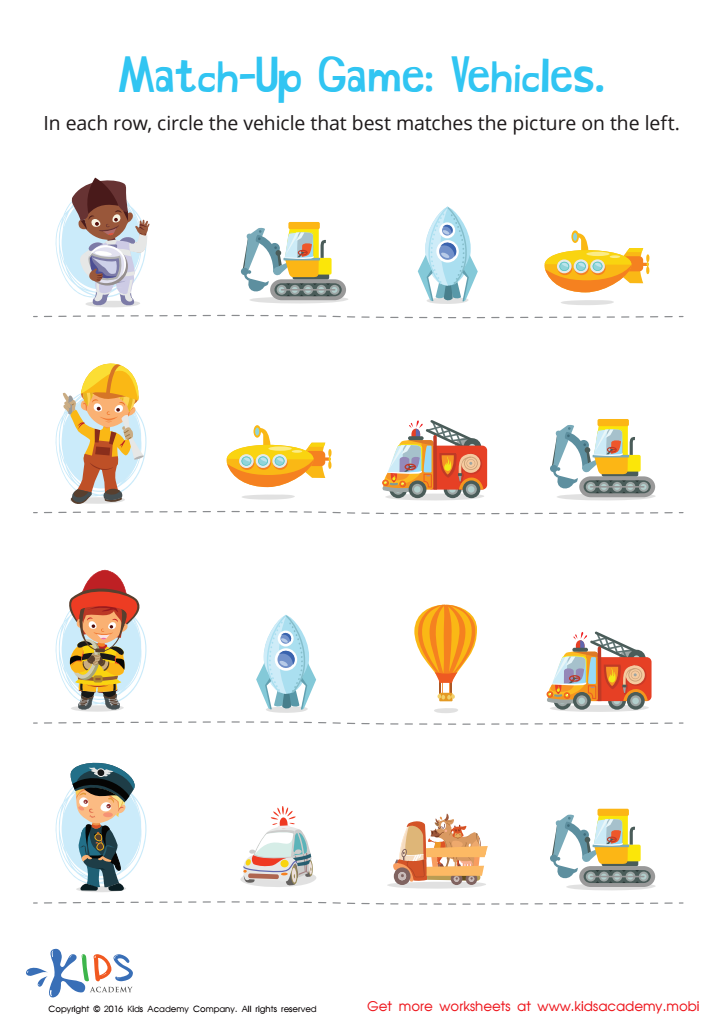

Vehicles Worksheet


Logic Game Sorting Worksheet
Categorization skills, particularly matching, are crucial for the cognitive and social development of 4-year-olds. When children engage in matching activities, they learn to identify similarities and differences in objects, which enhances their critical thinking and problem-solving abilities. This foundational skill is essential for various academic subjects, including math and science, where classification lays the groundwork for understanding concepts such as patterns, shapes, and numbers.
Parents and teachers should care about these skills because they influence a child's ability to comprehend their environment. Mastering categorization allows children to organize information more effectively, which is vital for language development and communication. As children categorize items, they expand their vocabulary and learn to express their thoughts and feelings clearly.
Moreover, matching games often involve social interaction and teamwork, fostering collaboration and communication skills. This engagement supports emotional growth as children build patience and resilience while learning from one another.
In summary, nurturing categorization and matching skills in 4-year-olds promotes cognitive development, enhances social interactions, and sets a solid foundation for future learning. Parents and teachers play a pivotal role in supporting these skills, ultimately contributing to a child's overall success and well-being.
 Assign to My Students
Assign to My Students
